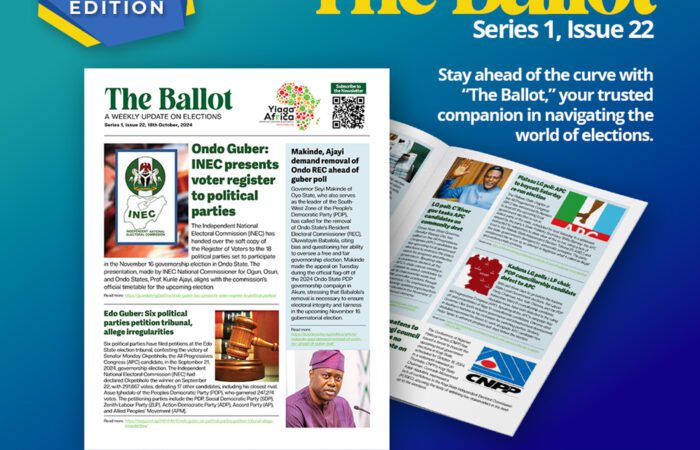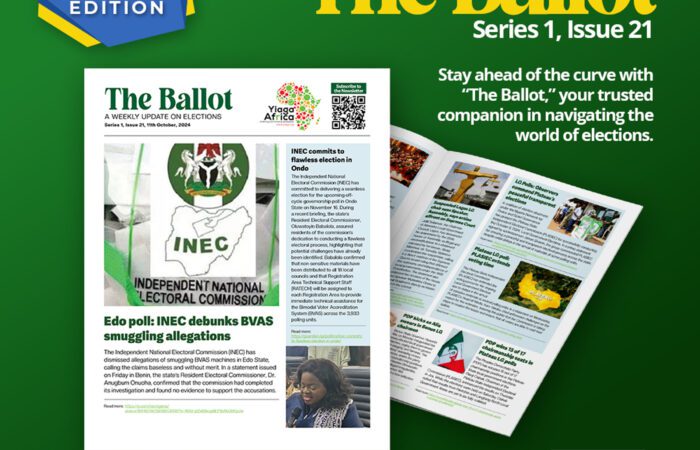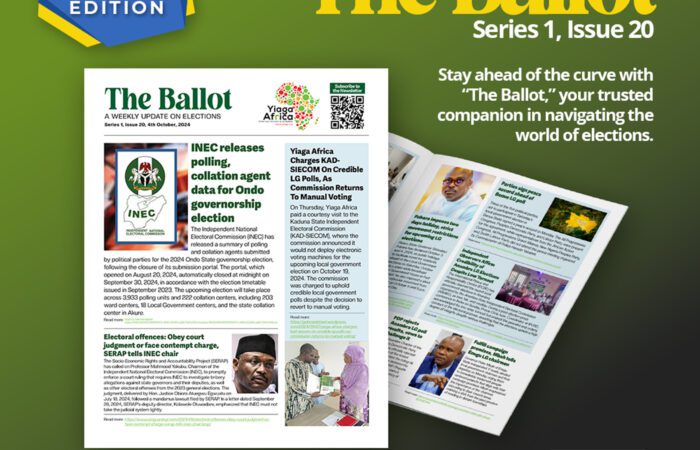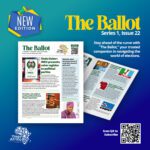The battle of wits between the National Assembly and the Presidency over an amendment to the Electoral Act, reordering the sequence of the 2019 elections is showing no sign of abating, writes Omololu Ogunmade
Eventually, President Muhammadu Buhari lived up to the expectation of most Nigerians during the week when he announced that he had vetoed the Electoral (Amendment) Bill 2018 sent to him by the National Assembly for assent.
The bill has been a subject of controversy since the House of Representatives during one of its deliberations, opted to reorder the sequence of the 2019 elections as against the timetable already announced by the Independent National Electoral Commission (INEC).
Whereas INEC had scheduled the presidential election to come first along with National Assembly polls on February 16, 2019, and governorship and houses of assembly elections on March 2, the House of Representatives opted to break the traditional tie of the presidential election with National Assembly polls by rearranging the scheduled polls, with National Assembly polls coming first in the bill and the presidential election coming last.
This idea quickly excited the Senate, which had earlier passed its own version of the bill without dabbling into election sequence by quickly buying it and hence, during the conference committee meeting of both chambers of the National Assembly on February 6, the proposed reordering of the polls by the House was adopted.
The intensity of the controversy generated by the decision overshadowed several other amendments in the bill to such an extent that election sequence seemed to be the only amendment carried out in the bill. However, this move did not go down well with the presidency which saw it as a threat to the chances of Buhari at the forthcoming polls.
Last month, during one of the Federal Executive Council (FEC) meetings in the State House, the presidency summoned INEC officials to the meeting. Although there was no briefing thereafter on what FEC discussed with INEC, a presidential source told THISDAY that the controversy on sequence of elections was discussed but not meant for public consumption.
Few days after, INEC insisted that notwithstanding the passage of the bill, its initial election schedule remained sacrosanct. Since then, the National Assembly had awaited the president’s veto and quietly began to mobilise its members to override it.
In the amendment, the National Assembly inserted a new Section 25(1) into the bill with the intention to make election sequence a legal matter. Opponents of the provision believe that the new provision violates Section 76 of the 1999 Constitution (as amended) which places the sole responsibility of fixing election dates on the electoral body.
The new provision in the bill states that elections shall be held in the following order: (a) National Assembly elections (b) State Houses of Assembly and Governorship elections (c) Presidential election without assigning dates.
Consequently, the National Assembly has been quick to defend its action, saying it did not perform INEC function by fixing election dates but only spelt out election sequence. It also argued that its decision was in compliance with Section 4(2) of the constitution which empowers it to make laws for peace, order and good governance of the country.
But the president and his men believe that the action of the National Assembly was in bad faith as in their own perspective, it was deliberately conceived to turn the table against the president at the forthcoming polls, an allegation the National Assembly has rejected.
According to the Chairman, House Committee on INEC, Edward Pwajok, the controversial election sequence was not targeted at anyone as believed but rather a move meant to provide Nigerians with the platform to make quality decision on choices of candidates for National Assembly polls.
“The sequence of election provision in the bill is not targeted at anybody but aimed at giving credibility to the electoral process. This is by giving the electorate the opportunity to vote based on qualities of candidates vying for National Assembly seats,” Pwajok had said.
But the president, in his letter conveying his veto on the bill to the National Assembly, did not cite the introduction of sequence of elections into the bill as the main reason for his decision. He however cited other amendments in the bill, which he said informed his decision.
Although his letter was dated March 8, 2018, it was only read by presiding officers of both houses of the National Assembly on March 13. Therein, he stated without ambiguity that the National Assembly by the insertion of Section 25(1) in the bill was attempting to usurp INEC powers to fix elections dates. He also cited other amendments, which he disagreed with.
“Pursuant to Section 58(4) of the Constitution of the Federal Republic of Nigeria 1999 (as amended), I hereby convey to the Senate, my decision, on 3rd March 2018, to decline Presidential Assent to the Electoral (Amendment) Bill 2018 recently passed by the National Assembly.
“Some of my reasons include the following: the amendment to the sequence of elections in Section 25 of the Principal Act, may infringe upon the constitutionally guaranteed discretion of the Independent National Electoral Commission to organise, undertake and supervise elections provided in Section 15(A) of the third statue to the Constitution;
“The amendment to Section 138 of the Principal Act to delete two crucial grounds upon which an election may be challenged by candidates, unduly limits the rights of candidates in elections to a free and fair electoral review process; and
“The amendment to Section 152(3)-(5) of the Principal Act may raise constitutional issues over the competence of the National Assembly to legislate over local government elections,” the letter read.
But 24 hours after the letter was read, a Federal High Court sitting in Abuja granted an interlocutory injunction brought by Accord Party, restraining the National Assembly from commencing the process of overriding the president’s veto.
The motion was a faster approach than the earlier suit by an Abuja-based legal practitioner, Chyma Anthony, who had on March 6, filed a suit asking the court to determine, if among other things, National Assembly by its action had not usurped the powers of INEC to fix election dates and consequently violated provisions of the 1999 Constitution which empower INEC to perform such function.
The plaintiff also prayed the court to specify if any other body reserves the right to exercise perceived INEC’s constitutional power on election matters including election schedule and its sequence.
However, the court injunction restraining the National Assembly from proceeding to override the president’s veto on Wednesday, provoked anger in the Senate, prompting it to write the Chief Justice of Nigeria (CJN), Justice Walter Onnoghen, asking him to call his men to order.
In the opinion of the senators, following a motion moved by the Minority Leader, Senator Godswill Akpabio, members of the judicial arm of government were violating the principle of separation of powers by interfering in the affairs of the legislature, another arm of government.
Akpabio warned that the trend might be a dangerous precedent, which another person might explore in the nearest future to stop the legislature from performing its functions.
However, the president’s decision to veto the bill as some may want to believe, might have been predicated on his belief that the National Assembly would find it impossible to secure a two-third majority of each of the chambers that is required to override his veto.
Already, the All Progressives Congress (APC) caucus in each chamber is divided on the matter while the minority members of the Peoples Democratic Party (PDP) are unanimous in their preparedness to override the veto. At the last count, only 22 of 66 APC members and 43 PDP members in the Senate have reportedly indicated interest in overriding the president’s veto.
In all, 73 of 109 members are required to override the veto in the chamber, but that is if they are all present at such a sitting otherwise it would be the two-thirds of members present that is required to make the override possible. In otherwise, that makes the decision to override the president easier. Unfortunately, it does appear the presidency is not aware of this development.
Nevertheless, the politics between the executive and the legislature on the bill, if not quickly nipped in the bud, holds the possibility of affecting the 2019 polls and throwing the country into crisis as a protocol of the Economic Community of West African States (ECOWAS) stipulates that the Electoral Act must be ready at least six months before the general election.
This implies that this battle for supremacy should not exceed July next year as it may call to question the validity of the polls. It is against this background that the question being asked is: when will common sense prevail between the two arms of government?
The crux of the matter is politics and it is that National Assembly’s insistence on having its own election first and the presidential election last is meant to checkmate the huge influence of the presidential election on other elections. Thus, the output of the first poll always rubs off on other elections, acting as the compass for the electorate to follow in other polls.
For instance, the victory of the APC in the 2015 presidential poll swayed victory in favour of the party in other polls. This appears to be the fear of the ruling APC if the presidential election comes last.
On the other hands, there are those who believe in the National Assembly that the president, in view of his handling of some issues in the polity in recent times, has lost goodwill and may lose at the presidential poll, a situation they believe may have bandwagon effects on them.
But, when will this battle end, at least, in national interest? This is the rhetorical question agitating the minds of many Nigerians, who believe that this contest between the two arms of government is both selfish and needless.
Besides, the decision by the Senate to drag the judiciary into the battle through its letter to CJN has made the battle a tripartite war among the three main organs of government. Where and when will this intrigue end? That is the question expected to be answered by unfolding events as even foreign countries such as the United States and United Kingdom are keenly watching the scenario.
Although the president reportedly met Thursday evening with the leadership of the National Assembly with a view to resolving the stalemate, it didn’t see like they found a middle ground yet as far as the matter is concerned.
Only recently, the British High Commissioner to Nigeria, Paul Arkwright, told the Deputy Senate President, Dr. Ike Ekweremadu, when he visited him that Britain was interested in the Electoral Act (Amendment) Bill.
“The legislative programme, which you have in the Senate and the National Assembly, the changes to the electoral laws are also important to us”, he said. But as it is, only time will tell therefore, where the pendulum will swing in the end.
Source: This Day






